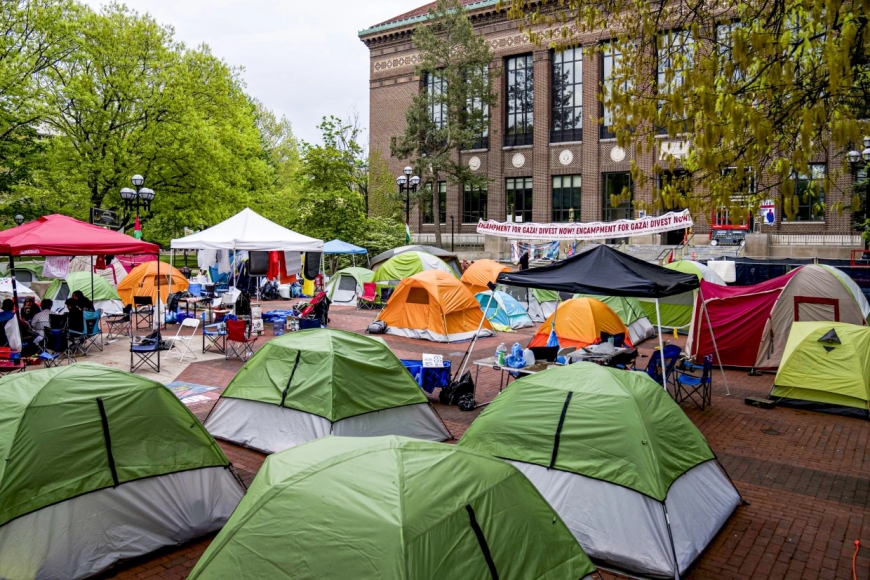Police Break Up Pro-Palestinian Encampment at the University of Michigan

Early Tuesday morning, police disbanded a pro-Palestinian encampment at the University of Michigan's campus, which had been established in late April. This action came less than a week after demonstrators placed fake body bags on the lawn of a university official, escalating tensions.
**Details of the Encampment and Police Action**
The encampment, situated on the Diag—a historic site for campus protests—was dismantled before sunrise. Officers equipped with helmets and face shields moved in to clear the area, employing irritants to disperse protesters, according to videos shared online. The encampment coincided with the end of the school year and the arrival of families for spring commencement, adding to the visibility and impact of the protest.
University President Santa Ono cited safety concerns as the primary reason for the disbandment. Overloaded power sources and open flames posed significant hazards, and organizers had ignored requests from a fire marshal to address these issues. Ono's statement emphasized that the encampment violated campus rules designed to ensure the space is accessible to all.
**Reactions and University Response**
Following the clearance, nearby buildings, including undergraduate and graduate libraries, were closed, affecting students who came to study. The university has reiterated its stance that its endowment does not have direct investments in companies with ties to Israel, with less than $15 million—under 0.1% of the total endowment—indirectly involved in such investments. Despite this, protesters have demanded a complete divestment from any firms connected to Israel.
Sarah Hubbard, chair of the Board of Regents, firmly stated last week, "There’s nothing to talk about. That issue is settled." This statement came in the wake of protesters placing red-stained sheets, resembling body bags, on her lawn and posting demands on the doors of other board members' homes.
**Wider Context and National Trends**
The University of Michigan's encampment is part of a broader movement across U.S. campuses calling for divestment from Israel. The protests have intensified since an April 18 police crackdown on a similar encampment at Columbia University. Nationwide, arrests related to these demonstrations have exceeded 3,000.
In Philadelphia, Drexel University faced similar tensions, threatening to clear an encampment as the campus went on lockdown, with classes held virtually and many employees working from home. President John Fry emphasized the need to restore campus normalcy, stating the encampment "cannot be allowed to remain in place."
**Concerns Over Antisemitism**
The protests have also sparked concerns about antisemitism. Board member Mark Bernstein, a Detroit-area lawyer, expressed alarm at a recent board meeting, stating, "This conduct is where our failure to address antisemitism leads literally—literally—to the front door of my home." Bernstein's remarks highlight the delicate balance universities must strike between allowing protest and ensuring safety and respect for all community members.
**Conclusion**
The dismantling of the encampment at the University of Michigan is a microcosm of the broader, heated debate on U.S. campuses about Israel, Palestine, and institutional investment policies. As the situation evolves, universities across the country are grappling with how to manage protests while addressing safety concerns and allegations of antisemitism.













































